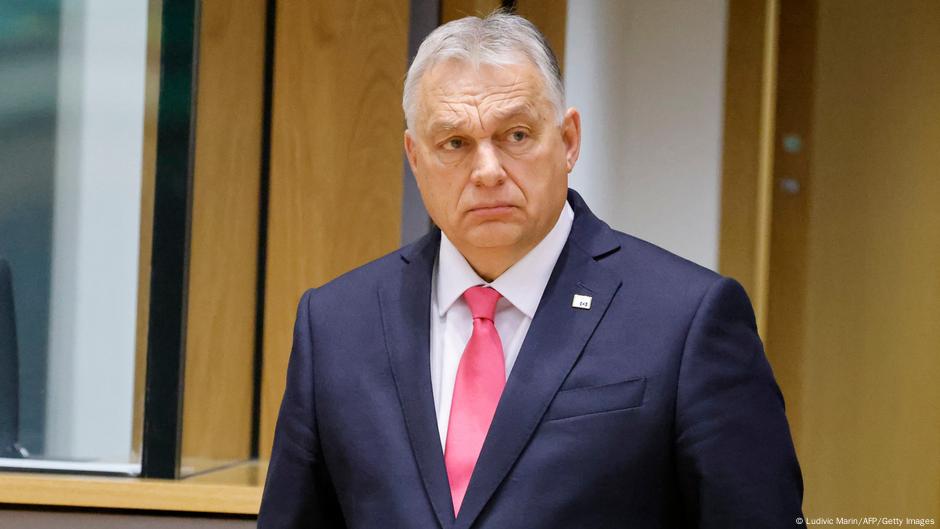On Thursday, the divide between Hungary and the rest of the European Union regarding the war in Ukraine became increasingly noticeable when Budapest once again refused to endorse a joint summit statement, marking the second occasion in two weeks this has occurred.
Rather than spend hours negotiating with Prime Minister Viktor Orban to achieve consensus among all 27 member states, the remaining countries chose to move forward without Hungary’s support.
“The European Council reiterates its ongoing and steadfast commitment to Ukraine’s independence, sovereignty, and territorial integrity as defined by its internationally acknowledged borders,” stated the leaders of 26 nations in a unified declaration.
Hungary had clearly signaled its intention to withhold agreement well in advance.
While the EU has expressed mixed reactions to US-led discussions with Russia aimed at concluding the conflict in Ukraine, Orban has openly endorsed these conversations, which have largely excluded both Kyiv and the EU.
Orban stated to the media just before the Brussels summit that, “In our view, the sole mission of the European Union should be to support President Donald Trump’s initiatives for peace.” He refrained from making an official arrival statement.
Unanimity Not Required
Despite the EU’s principle of striving for consensus, the conclusion reached on Thursday needed no formal agreement to show support without binding commitments. The other EU countries underscored continued financial and military aid to Ukraine and indicated that they could also provide security guarantees to deter future aggression from Russia.
The 26 EU nations authorized top diplomat Kaja Kallas to pursue additional funding for Ukraine, understanding this effort could engage member states voluntarily. Reports suggest amounts of up to 40 billion euros, which may include 5 billion for ammunition, are being discussed, although no deals have been finalized.
Challenges for Accession
However, achieving unanimity remains essential for other significant decisions, including Ukraine’s EU accession talks, which it aims to advance this year. European Commission President Ursula von der Leyen mentioned that Ukraine could potentially join by 2030 if reform efforts continue, a timeline many consider implausible.
Corruption and other hurdles have long plagued Ukraine, complicating the accession process. Moreover, Orban has indicated that Hungarian citizens would be surveyed on their stance regarding Ukraine’s EU membership, threatening to utilize his veto if necessary.
Future Confrontations Ahead
Decisions on sanctions also require all member states’ approval. EU ambassadors recently reached a last-minute agreement with Hungary to extend sanctions affecting over 2,000 individuals connected to Russia’s actions in Ukraine. As the renewal of significant sanctions approaches in July, the EU is preparing for a 17th package of sanctions.
Nevertheless, cooperation persists in other domains. Orban supports substantial upcoming EU investments in defense as the U.S. adopts a more unpredictable stance toward European security. While the EU has welcomed recent ceasefire agreements led by the US, it remains uncertain about the trajectory of these negotiations. Orban, bolstered by his alignment with Trump, believes Hungary is in a strong position, asserting that “Europe is isolated,” as stated by a Hungarian government spokesperson following the summit.



